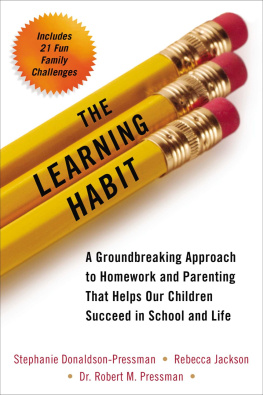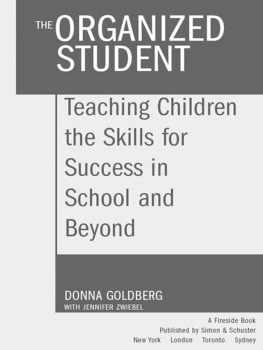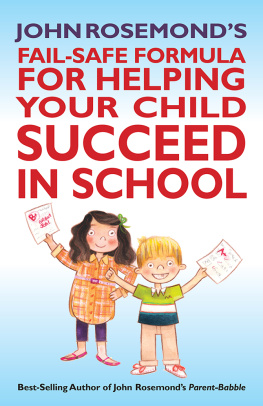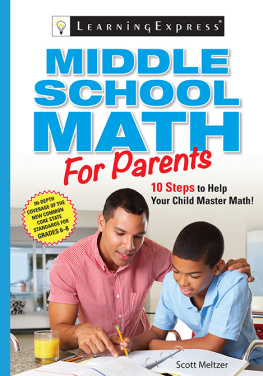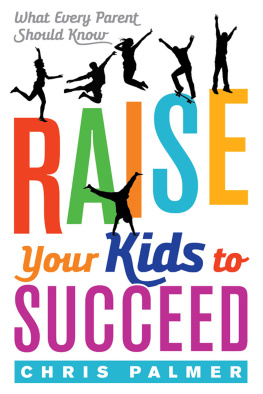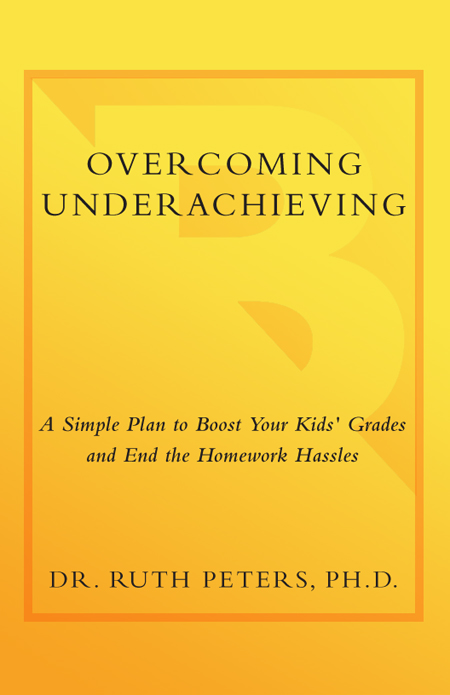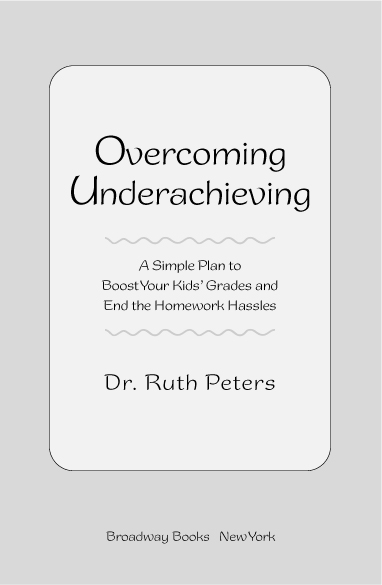Ruth Peters - Overcoming Underachieving: A Simple Plan to Boost Your Kids Grades and End the Homework Hassles
Here you can read online Ruth Peters - Overcoming Underachieving: A Simple Plan to Boost Your Kids Grades and End the Homework Hassles full text of the book (entire story) in english for free. Download pdf and epub, get meaning, cover and reviews about this ebook. year: 2009, publisher: Harmony/Rodale, genre: Home and family. Description of the work, (preface) as well as reviews are available. Best literature library LitArk.com created for fans of good reading and offers a wide selection of genres:
Romance novel
Science fiction
Adventure
Detective
Science
History
Home and family
Prose
Art
Politics
Computer
Non-fiction
Religion
Business
Children
Humor
Choose a favorite category and find really read worthwhile books. Enjoy immersion in the world of imagination, feel the emotions of the characters or learn something new for yourself, make an fascinating discovery.

- Book:Overcoming Underachieving: A Simple Plan to Boost Your Kids Grades and End the Homework Hassles
- Author:
- Publisher:Harmony/Rodale
- Genre:
- Year:2009
- Rating:5 / 5
- Favourites:Add to favourites
- Your mark:
Overcoming Underachieving: A Simple Plan to Boost Your Kids Grades and End the Homework Hassles: summary, description and annotation
We offer to read an annotation, description, summary or preface (depends on what the author of the book "Overcoming Underachieving: A Simple Plan to Boost Your Kids Grades and End the Homework Hassles" wrote himself). If you haven't found the necessary information about the book — write in the comments, we will try to find it.
Is your child constantly bored or frustrated at school? Has homework become more of a family crisis than a learning exercise every evening? As any parent of a school-age child can tell you, helping children to achieve at school and get into a good college is a primary concern. Parents are starting to worry about this when their children are still very young, knowing that the work habits and study skills their children develop in elementary school will affect their performance in middle school, high school, and eventually, college. Unfortunately, bad habits on the part of kids and parents can result in poor academic performance and tense parent/child relationships.
Now, in Overcoming Underachieving, Dr. Ruth Petersa trusted child psychologist who has helped thousands of children and their parents solve scholastic problemstackles kids academic underachievement head-on, and presents a clear strategy that has worked for her clients and can work for almost all kids who arent performing as well as they could. With a practical program targeted for parents of children from first through the twelfth grade, this book gives concrete advice about how to:
-reward performance
-build a childs self-concept
-help kids battle apathy
-identify common behavioral patterns among parents and children that lead to academic underachievement
As the market is inundated with new study aids and guidebooks and expensive tutors, Dr. Peterss straightforward, strategic plan is a breath of fresh air for parents and children. Overcoming Underachieving is the best tool for helping your kids get the better grades they want and deserve.
Ruth Peters: author's other books
Who wrote Overcoming Underachieving: A Simple Plan to Boost Your Kids Grades and End the Homework Hassles? Find out the surname, the name of the author of the book and a list of all author's works by series.

